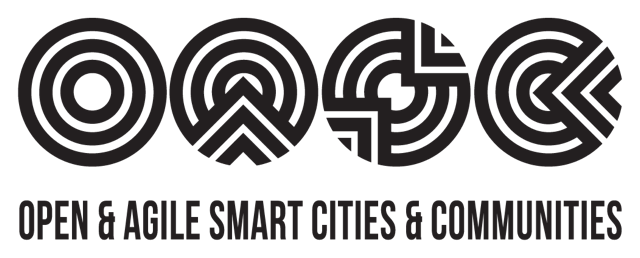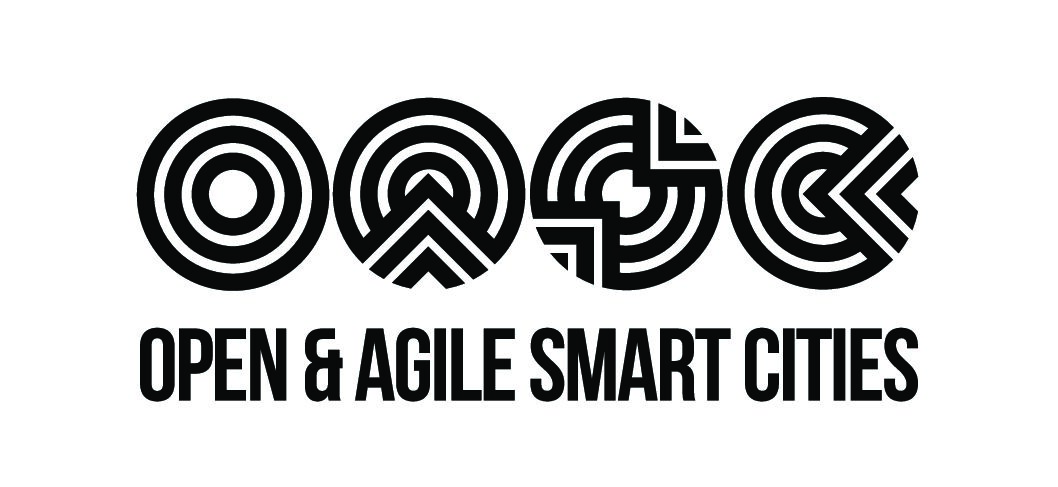Open & Agile Smart Cities (OASC) is starting the new “school year” with a stronger management team, to support a strategy focused on members and partners by evolving a common technical ground for cities and communities through the “Minimal Interoperability Mechanisms” (MIMs). The management revamp is part of an initiative started last year by the OASC Board of Directors to strengthen governance and accountability.
New Executive Director appointed
Geni Raitisoja was appointed OASC Executive Director in August, after former CEO Davor Meersman left by mutual agreement with the Board. Geni joined OASC in March as responsible for strategic engagement and operations. She has previously worked with companies and organisations globally from her base in Tampere, Finland.
Martin Brynskov, Chair of the OASC Board of Directors, from Aarhus University, says:
“Geni is the profile we need right now to unfold the great potential of the MIMs on behalf of the members in close collaboration with our fantastic partners. She’s a dynamic and competent team leader who creates order in a very complex field of strategic engagement and lets the excellent team profiles perform at their best.”
New Board structure better supports members
In addition, OASC Council of Cities Coordinator Paulo Calçada, Porto (Portugal), now serves as the Vice Chair of the OASC Board of Directors. Paulo’s appointment will ensure better engagement with OASC members. In his role, Paulo will be supported by Brigitte Lutz, Vienna (Austria), and Roland van der Heijden, Rotterdam (The Netherlands), who were elected Vice Coordinators of the OASC Council of Cities in June.
Paulo Calçada, Vice-Chair of the OASC Board of Directors and Coordinator of the OASC Council of Cities, says:
“Now is the time for the market to start catering to the needs of cities and communities, and the MIMs are a perfect way for cities like Porto to reduce the risk when building its systems to meet the future. We need to ensure that OASC grows to the challenge, and its responsibilities.”
New Core Partner representative on the Board
The OASC Board also welcomes the appointment of Karl-Filip Coenegrachts, who on 1 September took over from Nils Walravens as representative of Core Partner imec (Belgium). Karl-Filip worked for 18 years as a practitioner in urban, digital and data strategies for the City of Ghent (Belgium). He founded the Cities of People partnership that focuses on placing people central in urban futures. Recently he joined imec-SMIT-VUB.
Karl-Filip Coenegrachts, imec representative to the OASC Board, says:
“From experience I know that cities and communities tend to reinvent the wheel when trying to find (digital) solutions to their local challenges. Bringing together all the actors and collaborating using instruments like the MIMs are crucial to avoid this. I am looking forward to contribute to the further development and deployment of this common technical ground.”
Work on MIMs front and centre
On 17 September, the renewed OASC MIMs working groups will meet to prepare for the OASC Tech Council the next steps for the ten OASC MIMs. Five MIMs were progressed and another five adopted as new work items at the Council of Cities meeting in June.
Input from members and partners is the basis for the working group discussions, together with relevant policy dialogues. In Europe, this is led by the Living-in.EU Tech Subgroup which on August 9 delivered the MIMs Plus Final technical specification version 4. A key global stream is the United Nations “United for Smart and Sustainable Cities and Communities” (U4SSC), led by the International Telecommunications Union (ITU) and UN-Habitat, where OASC is co-chairing the “New Architecture” for sustainable, digital transformation in cities and communities.
Input includes work by the City of Helsinki as champion of MIM 4: Personal Data Management along with Vastuu Group; by the City of Amsterdam as champion of MIM 5: Fair AI; by OASC Sweden/Swedish Association of Municipalities on the architectural framework; the European Commission’s Joint Research Centre (JRC) for geospatial information; and Danish Standards on basic recommendations for sustainable, digital transformation in cities and communities.
Geni Raitisoja, Executive Director, OASC, says:
“I am humbled by the strength of the support that has been shown to us by the community – our members, partners and team. In the past several weeks, the team has delivered and will continue to deliver concretely and beyond the standard that has been expected of OASC. I look forward to working even more closely with such a diverse and talented network. OASC will continue to work towards advancing sustainable, digital transformation through the MIMs.”

